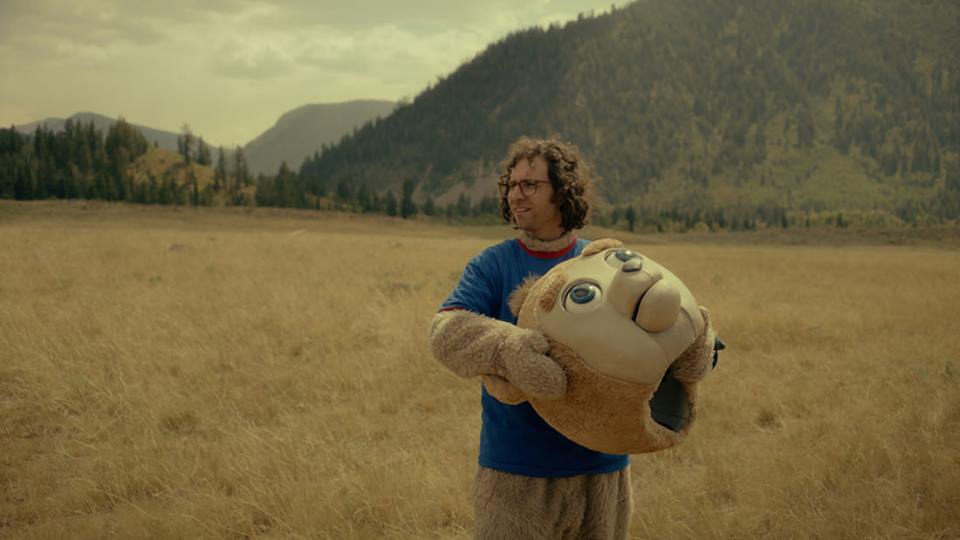How SNL-alum comedies went from blockbusters to indie darlings
Forget Corky Romano. Brigsby Bear and Landline are more Sundance than mall multiplex.


A free daily email with the biggest news stories of the day – and the best features from TheWeek.com
You are now subscribed
Your newsletter sign-up was successful
There hasn't been a movie based directly on a Saturday Night Live sketch since 2010's cultishly adored but drastically underattended MacGruber, and while SNL cast members still pop up in movies, they generally seem less eager for star vehicles. It's not unusual for a breakout star like, say, Kate McKinnon to do at least half a dozen seasons on the show (her seventh begins in the fall) while logging scene-stealing supporting parts in movies like Ghostbusters and Rough Night. McKinnon is arguably the show's most popular performer at the moment, and she has yet to take an unequivocal starring role in a movie.
The premature and/or ill-considered SNL cast member vehicle, like Dana Carvey's Clean Slate or Chris Kattan's Corky Romano, may not be completely dead, but it's certainly less common than it used to be. Which is not to say relatively recent Saturday Night Live alums aren't taking leads.
In fact, July saw two such performers in leading roles: Landline stars one-season cast member Jenny Slate in a reunion with her Obvious Child director Gillian Robespierre, while Brigsby Bear is a showcase for current cast member Kyle Mooney (expected to return for his fifth season in the fall). Neither of them will necessarily play the average mall multiplex. In fact, they both premiered at Sundance back in January.
The Week
Escape your echo chamber. Get the facts behind the news, plus analysis from multiple perspectives.

Sign up for The Week's Free Newsletters
From our morning news briefing to a weekly Good News Newsletter, get the best of The Week delivered directly to your inbox.
From our morning news briefing to a weekly Good News Newsletter, get the best of The Week delivered directly to your inbox.
If Obvious Child felt a little like Slate shaking off her SNL run to depict a scrappier, grittier side of the New York comedy scene (she played a stand-up comedian in want of an abortion after a one-night stand), Landline ensconces her in a different kind of New York establishment. In a lot of ways, it resembles a Woody Allen-ish indie comedy from the mid-'90s, when the movie happens to be set. Specifically, it resembles Greg Mottola's The Daytrippers, in which a family heads out to follow its patriarch, suspecting him of adultery. Here Dana (Slate) and her teenage sister Ali (Abby Quinn) spy on their dad (John Turturro), who may be cheating on their mom (Edie Falco).
There are a couple of sorta-twists on this premise, more Woody Allen than M. Night Shyamalan: One, interesting in theory but not necessarily in practice, is that Dana herself begins cheating on her slightly dull fiancé with a guy the movie doesn't fully acknowledge is equally dull, but more conventionally handsome. Another, more productive development is that Dana and Ali forge a stronger bond as they fume and fret over their dad's, and Dana's, transgressions. When Robespierre stays focused on the two sisters and their distinct but familiar ways of nagging at each other — “you are such an irritant!” Dana complains, sounding almost awed — Landline has the sharp focus of her debut. The other characters, though well-sketched, don't really take root in the same way.
Little of Slate's performance here has to do with her broader comedy experience. She's clearly interested in playing women who are conscious of their past and current screw-ups, something that never had a chance to emerge during her brief time on Saturday Night Live. She has a clear and compelling voice as a performer, and it often seems to have almost nothing to do with her stint on the country's most famous sketch show.
Brigsby Bear, by contrast, feels very much of a piece with Mooney's SNL work, which is often as strange as it is melancholy. A co-writer of the script, Mooney plays James, a young-but-not-that-young man who still lives with his parents. He is first seen participating in a series of odd rituals, some involving a crudely produced children's television show called Brigsby Bear. Eventually, police burst through the door, because it turns out that James was kidnapped as a baby by cultists (Mark Hamill and Jane Adams) and raised as their own. His beloved Brigsby Bear is a lie, too, produced by his non-father for years, aimed directly at an audience of exactly one. As he adjusts to life with his actual parents, James decides that he'd like some closure on Brigsby by making a movie about him. Not a documentary, mind you, but a feature that concludes the character's bizarre science-fiction adventures.
A free daily email with the biggest news stories of the day – and the best features from TheWeek.com
Mooney is obsessed with bending the creakiest of entertainment conventions to a breaking point. On SNL, this manifests in characters like Bruce Chandling, a hacky stand-up comic whose material would have seemed stale 20 years ago, and who after issuing a bunch of stereotype-dependent yuks, always winds up staring into the abyss of his own loneliness. He also, with his frequent writing and scene partner Beck Bennett, riffs on the mechanics of television, as in a recent video that draws out the most minor of conflicts into a reality-show spat complete with confessional cutaways that say nothing.
Brigsby Bear performers a gentler, more delicate version of this cultural examination. The show-within-the-movie has an analog-age combination of clumsiness and tactility; the Brigsby Bear costume resembles, by turns, Teddy Ruxpin, Chuck E. Cheese animatronics, and Disney World characters. Though the scripts are driven by the bizarre mini-cult that spawned them, they aren't so much stranger than any number of kid-show relics. James has a disaffected teenage sister (Ryan Simpkins), and her friends, including a budding filmmaker, start to dig the weird mission to make a Brigsby feature. The movie recognizes the way cultural curiosities can turn into ironic memes, and back into sincere obsessions.
Director Dave McCrary (a writer and segment director on SNL) never makes the turn into broader, sillier comedy; for a movie about making a low-budget film based on a TV show created to placate the victim of a cult-napping, it's not especially wild. Even moreso than Mooney's sketch-comedy bits, much of Brigsby Bear perches right on the line between the comedy of awkwardness and the tragedy of loneliness. Unlike, say, a Bruce Chandling appearance, its gentle heartstring tugs occasionally feel calculated. But most of the time, it's sweetly sincere about the roots, and therapeutic value, of creativity.
During the time periods that both these two movies look back on, Mooney or Slate might have been eyed for a studio cash-in — a way to sanitize that SNL creativity for a multiplex audience. Now the (currently) viewer-rich SNL represents de facto blockbuster work, and starring in movies feels like indulging their niche on a larger canvas. Saturday Night Live movies used to be something to dread; alumni like Slate and Mooney have turned them into indie events.
Jesse Hassenger's film and culture criticism has appeared in The Onion's A.V. Club, Brooklyn Magazine, and Men's Journal online, among others. He lives in Brooklyn, where he also writes fiction, edits textbooks, and helps run SportsAlcohol.com, a pop culture blog and podcast.
-
 How the FCC’s ‘equal time’ rule works
How the FCC’s ‘equal time’ rule worksIn the Spotlight The law is at the heart of the Colbert-CBS conflict
-
 What is the endgame in the DHS shutdown?
What is the endgame in the DHS shutdown?Today’s Big Question Democrats want to rein in ICE’s immigration crackdown
-
 ‘Poor time management isn’t just an inconvenience’
‘Poor time management isn’t just an inconvenience’Instant Opinion Opinion, comment and editorials of the day
-
 Walter Isaacson's 'Elon Musk' can 'scarcely contain its subject'
Walter Isaacson's 'Elon Musk' can 'scarcely contain its subject'The latest biography on the elusive tech mogul is causing a stir among critics
-
 Welcome to the new TheWeek.com!
Welcome to the new TheWeek.com!The Explainer Please allow us to reintroduce ourselves
-
 The Oscars finale was a heartless disaster
The Oscars finale was a heartless disasterThe Explainer A calculated attempt at emotional manipulation goes very wrong
-
 Most awkward awards show ever?
Most awkward awards show ever?The Explainer The best, worst, and most shocking moments from a chaotic Golden Globes
-
 The possible silver lining to the Warner Bros. deal
The possible silver lining to the Warner Bros. dealThe Explainer Could what's terrible for theaters be good for creators?
-
 Jeffrey Wright is the new 'narrator voice'
Jeffrey Wright is the new 'narrator voice'The Explainer Move over, Sam Elliott and Morgan Freeman
-
 This week's literary events are the biggest award shows of 2020
This week's literary events are the biggest award shows of 2020feature So long, Oscar. Hello, Booker.
-
 What She Dies Tomorrow can teach us about our unshakable obsession with mortality
What She Dies Tomorrow can teach us about our unshakable obsession with mortalityThe Explainer This film isn't about the pandemic. But it can help viewers confront their fears about death.
